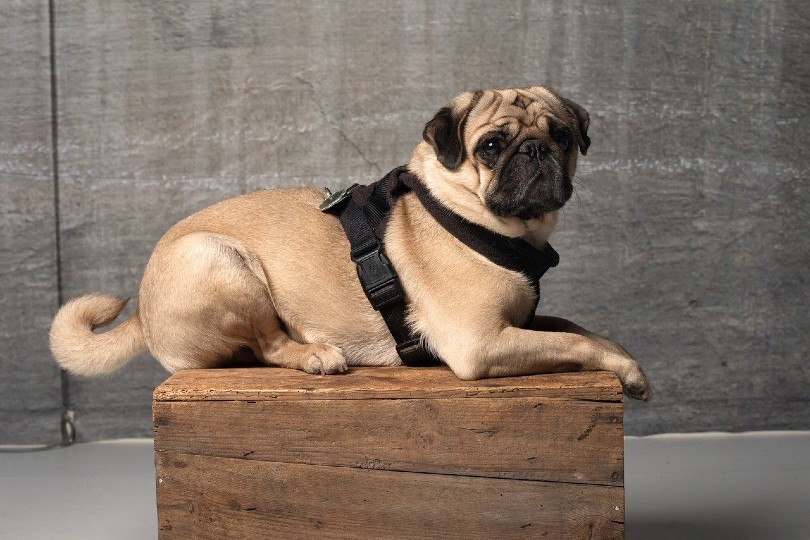Why Do Dogs Drag Their Butts? Vet-Approved Reasons
By Jessica Kim
Updated on
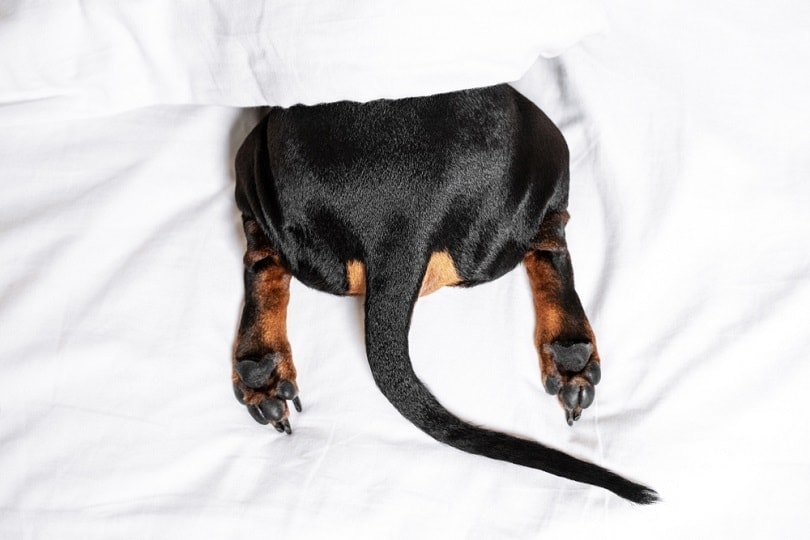
When you see a dog dragging his butt on the ground, it may seem strange or funny. However, this behavior is quite common in dogs. There are a variety of reasons why dogs will scoot on the ground but it generally indicates that something is bothering them. They may just be trying to scratch an itch, or the behavior can be a sign of health issues, like anal sac problems or a tapeworm infection. We’ll go over some of the common reasons why dogs may scoot and what you can do to help them out.
The 7 Reasons Dogs Drag Their Butts on the Ground
1. General Itch
Unlike humans, dogs don’t have fingers that can scratch hard-to-reach places. So, they have to resort to other means to scratch an itch. This involves scooting on the ground to relieve itchiness. So, if your dog drags its butt on the ground every once in a while, you don’t have to worry because he’s probably just trying to scratch a momentary itch.
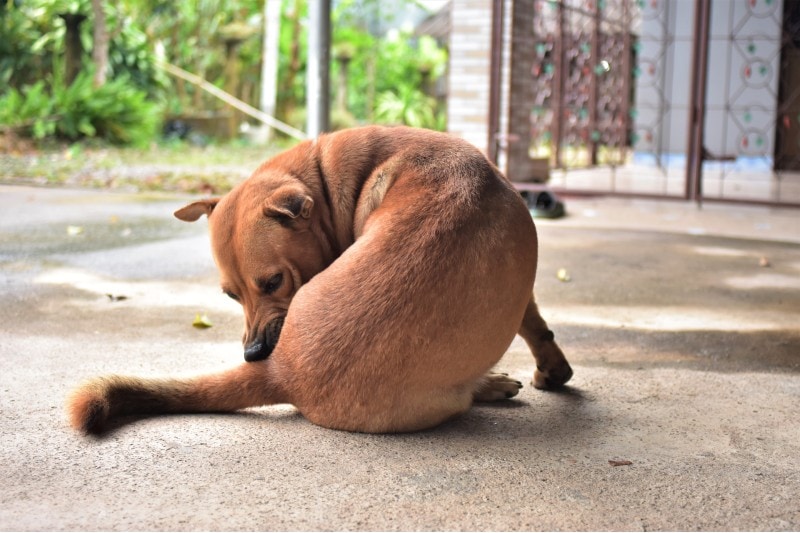
2. Anal Sac Issues
One of the most common reasons why dogs scoot is because of anal sac issues. Dogs have two anal sacs located on either side of the bum that are filled with fluid. This fluid is foul and fishy smelling and is usually expressed from the anal sacs when your dog passes a stool. This liquid is part of a dog’s scent marking behavior. However, sometimes these sacs don’t empty properly meaning they get very full and dogs try to relieve the pressure and irritation by scooting. The anal sacs can also get infected and even rupture.
Dogs that have an anal sac issue may also lick around the area, it may be swollen and they can have difficulty defecating. You may also notice a fishy smell coming from the area.
3. Skin Irritation
You might notice your dog scooting his butt after coming home from the grooming salon. The bum area can be a challenging area to shave and clip, so your dog may come home with a minor nick or clipper rash. Some dogs with sensitive skin may also get reactions and inflammation to certain shampoos, conditions, and pet perfumes.
Skin allergies can also cause itchiness and irritation around the back end and cause scooting.

4. Fecal Contamination & Matted Hair
Sometimes, scooting occurs if your dog is having gastrointestinal issues due to feces getting stuck around their bum area. Diarrhea that gets caught under your dog’s tail can end up causing itchiness and inflammation, especially if the affected area gets infected. Sometimes, the itchiness can be resolved by simply wiping the area or bathing your dog. If there’s an infection, you’ll have to consult your veterinarian and get your dog treatment.
Scooting can also be caused by matted hair around their bum. This is more common in breeds with long hair and can be avoided by keeping up with regular grooming.
5. Rectal Prolapse
Occasionally, scooting is a sign of rectal prolapse, which is when part of the rectum protrudes through the anus. Rectal prolapse is often caused by straining to poop, chronic constipation, intestinal tract inflammation, and parasites.
There are varying degrees of rectal prolapse, and treatment will depend on the severity of the condition. However, it’s important to get your dog to your veterinarian right away. If left untreated, rectal prolapse often leads to tissue death and sepsis.
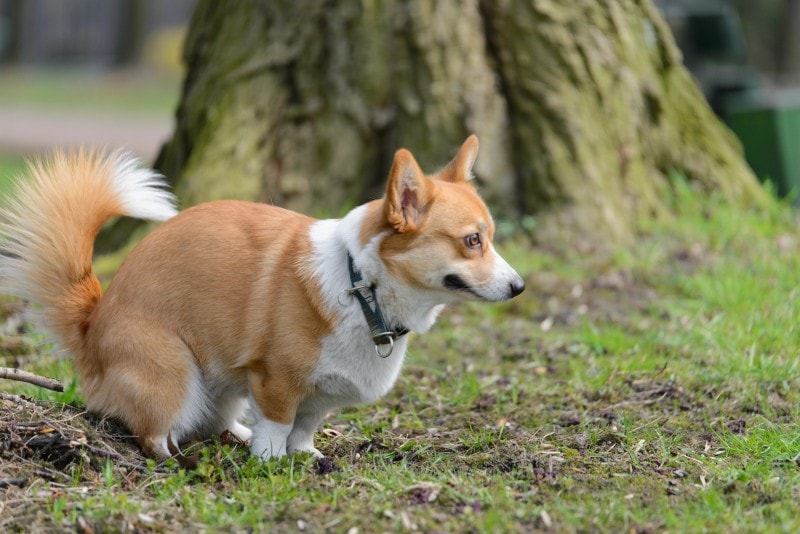
6. Worms
Sometimes, dogs can get a tapeworm infection by ingesting flea larvae carrying tapeworm eggs. When the tapeworm matures, segments called proglottids will break from the tapeworm’s main body and get passed with the host dog’s feces. Dogs may scoot when this happens, and you may see proglottids moving around their anus. It’s also likely that you’ll find them in your dog’s poop. They’ll look like grains of white rice.
7. Behavioral Reasons
Dogs are observant and excel at detecting what gets their owners’ attention. It’s possible that your dog may start scooting if he notices that it consistently gets your attention, especially if you find it entertaining. This concept is similar to how dogs learn new tricks. Both a positive and negative reaction from you can encourage your dog to repeat behavior. However, it’s very important to rule out possible underlying conditions, before assuming it’s a trick to get your attention.
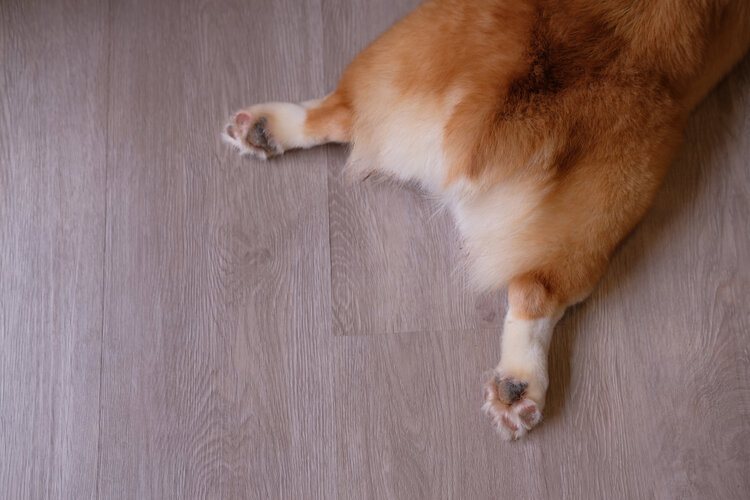
What to Do If Dogs Consistently Drag Their Butts
Very occasional scooting may be normal and nothing to worry about. But it’s helpful to just check the area around the anus for any obvious problems. If you notice your dog dragging his butt more frequently, it’s best to schedule a visit with your veterinarian. Your veterinarian will perform a physical exam and may run some tests to diagnose the issue.
Treatment will vary depending on your dog’s condition. Minor cases of clogged anal glands can be cleared out with quick expression, while more severe infections may require medication. Your vet may prescribe dewormers, antibiotics, or anti-inflammatories, depending on the cause. In cases of rectal prolapse, surgery is required to return the prolapsed tissue back to its original position.
Conclusion
Dogs will drag their butts for a variety of reasons, and it can be a sign of an underlying health issue. So, it’s important to pay attention to this behavior. It’s not the most pleasant part about caring for your dog, but your dog is dependent on you to get the proper treatment that they need. So, if you notice frequent scooting, schedule an appointment with your veterinarian to figure out the cause and the best way to help your dog feel better again.
Featured Image Credit: Masarik, Shutterstock



